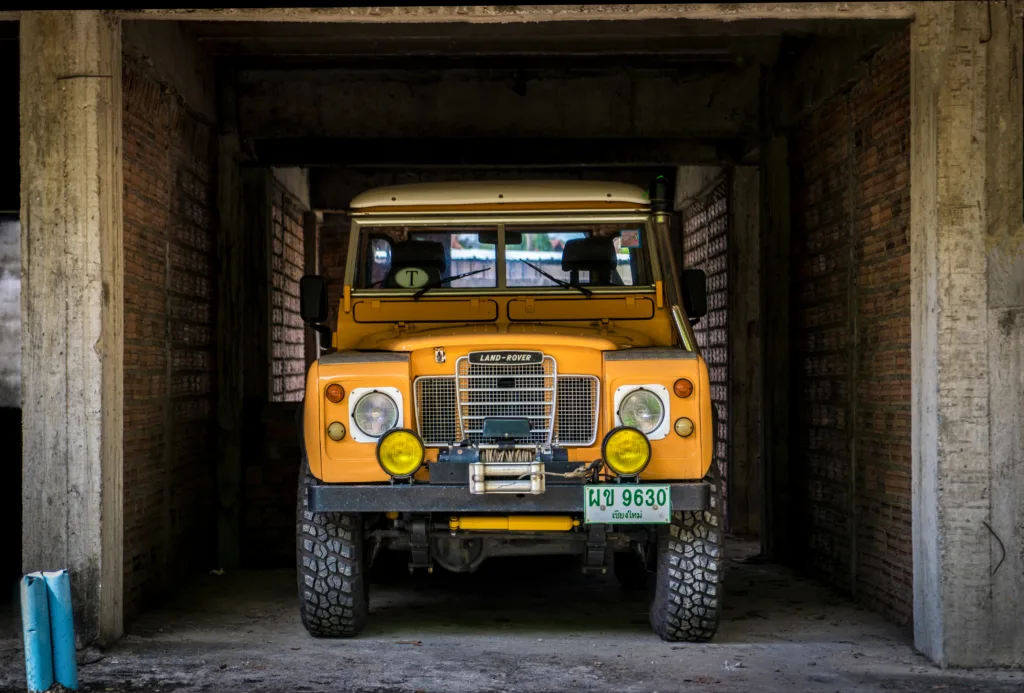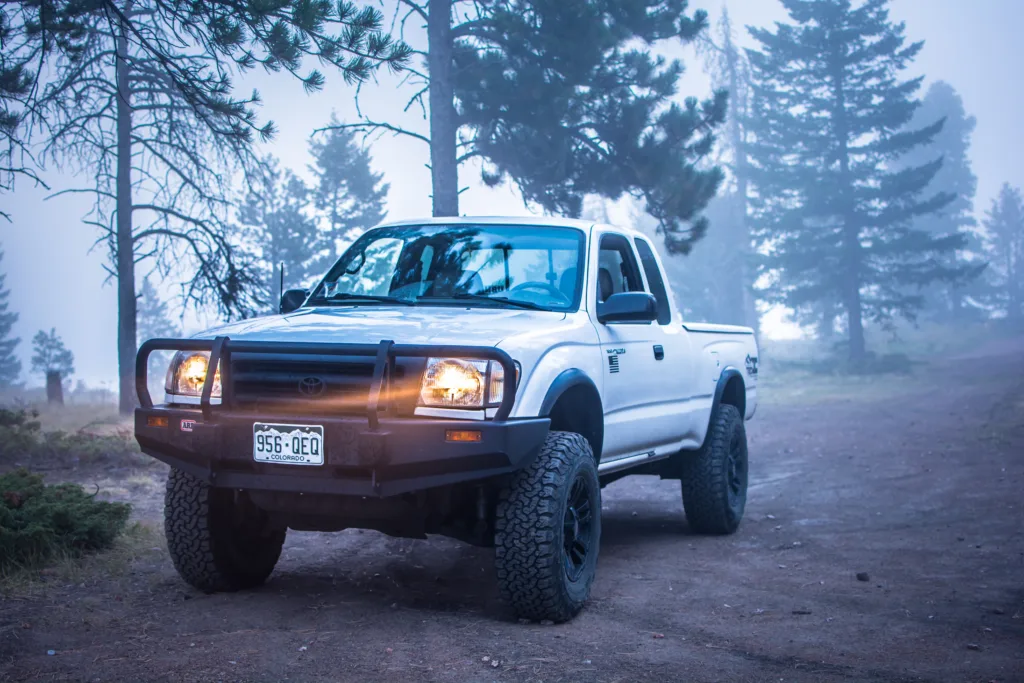If you own a truck, you might have considered leveling it at some point. Leveling involves raising the front of your truck (mostly by a maximum of 2 inches) to bring it in line with the stock height at the back. This is a simple installation and only requires coil spring spacers, torsion keys or strut extensions to complete the job.
A leveled truck has several benefits. First, it improves the overall appearance of the truck, giving it a more aggressive stance. Second, it can help improve the performance of your truck. When you level your truck, you can run larger tires, which will increase your ground clearance. This is especially important if you enjoy off-roading or if you often drive on rough terrain.
Another benefit of leveling your truck is that it can improve your truck’s towing and hauling capabilities. When you level your truck, it helps to distribute the weight more evenly, which can improve the handling and stability of your vehicle.
While thre are several benefits to leveling your truck, there are also some potential risks. The weight of the vehicle rests on the suspension. If a front-end leveling kit is installed incorrectly, it can cause increased wear and tear on the suspension system. This can lead to premature wear on your shocks and struts, and other suspension components.
Additionally, leveling your truck can cause some issues with your truck’s alignment and steering. When you level your truck, it changes the geometry of your suspension, which can cause your truck to pull to one side or the other. This can be especially problematic if you do a lot of highway driving.
Leveling your truck can also affect your truck’s warranty. If you install a leveling kit and then experience suspension problems down the line, your truck’s manufacturer may not honor your warranty. It’s important to check with your manufacturer before installing a leveling kit to make sure it won’t void your warranty.
Ultimately, the decision to level your truck comes down to personal preference and your driving needs. A leveling kit is a perfect addition if you are looking to improve off-roading capabilities. Higher ground clearance and larger tires are ideal when venturing into mud, dirt, rocks, sand, and other terrains. It will prevent the front bumper and other parts from being damaged by rocks and debris.
However, if you primarily use your truck for highway driving or towing, you may want to reconsider leveling your truck. The potential risks may outweigh the benefits in these cases.
Leveling your truck can be a great way to improve its appearance and performance. However, it’s important to consider the potential risks before making a decision. If you do decide to level your truck, make sure you have it installed by a professional to avoid any issues with your suspension.
What Does It Mean When A Truck Is Leveled?
Leveling a truck means to raise the front of the vehicle to match the stock height at the back. This process is usually done by installing coil spring spacers, torsion keys, or strut extensions, whch can elevate the front of the truck by a maximum of 2 inches. The purpose of leveling is to improve the appearance of the truck and to provide a more balanced ride. By bringing the front of the truck up, it can also accommodate larger tires and wheels, which can improve off-road performance. leveling is a simple modification that can enhance the look and function of a truck without requiring extensive modifications.

Do Leveling Kits Hurt Your Truck?
Leveling kits can potentially cuse harm to your truck if they are installed incorrectly or if they are not compatible with your vehicle’s make and model. Here are some ways that leveling kits may harm your truck:
1. Increased Wear on Suspension: As mentioned earlier, the weight of the vehicle rests on the suspension. If the leveling kit is installed incorrectly, it can cause increased wear and tear on the suspension system.
2. Poor Handling: If the leveling kit is not properly installed, it can affect the truck’s handling. This can cause the vehicle to be unstable and difficult to control.
3. Uneven Tire Wear: If the leveling kit is not compatible with your vehicle’s tire size, it can cause uneven tire wear. This can lead to premature tire replacement and additional expenses.
4. Reduced Ground Clearance: Depending on the type of leveling kit you install, it can reduce your truck’s ground clearance. This can make it difficult to traverse rough terrain or obstacles.
5. Voided Warranty: Installing a leveling kit on your truck may void your vehicle’s warranty. This is because modifications to your vehicle can have negative impacts on its performance and safety.
It’s important to note that not all leveling kits are created equal. Some are designed specifically for certain vehicles and have been thoroughly tested to ensure they are safe and effective. If you are considering installing a leveling kit on your truck, it’s important to do your research and consult with a professional to ensure that it is the right choice for your vehicle.
Is Leveling A Truck A Good Idea?
Leveling a truck is a good idea if you are lookng to improve its off-roading capabilities. It involves raising the front of the truck to match the height of the rear, thus providing better ground clearance for the vehicle. By doing so, you can install larger tires and prevent the front bumper and other parts from being damaged by rocks and debris when driving on rough terrains.
Moreover, leveling a truck can also improve its appearance, making it look more aggressive and rugged. However, it is important to note that leveling a truck may affect the vehicle’s handling, stability, and ride quality, especially when driving on paved roads. As such, it is essential to choose the right leveling kit and have it installed by a professional mechanic to ensure proper installation and avoid any potential issues.
Leveling a truck can be a good idea if you are looking to improve its off-road performance and appearance. However, it is crucial to consider its impact on the vehicle’s handling and stability and to have a professional install the kit to ensure proper installation and avoid any potential safety issues.
Is It Better To Lift Or Leveling Your Truck?
When deciding wether to lift or level a truck, it depends on the individual’s needs and preferences. Leveling kits are an affordable option to raise the front of the vehicle by a few inches, correcting the nose-down stance that some trucks have. This provides a more even look with the height of the rear of the truck.
Lift kits, on the other hand, provide a significant amount of ground clearance- sometimes up to 10 inches or more. This allows for larger tires, better off-road capability, and a smoother ride. However, lift kits are more mechanically involved and expensive than leveling kits.
If the goal is only to improve the appearance of the vehicle, a leveling kit is a viable option. However, if off-road capability or ground clearance is desired, a lift kit is the better choice. Ultimately, the decision should be made based on the individual’s needs, preferences, and budget.

Conclusion
Leveling your truck is a great way to improve its appearance and off-road capabilities. It is a simple installation that can be completed with coil spring spacers, torsion keys or strut extensions. However, it is important to ensure that the leveling kit is installed correctly to prevent increased wear and tear on the suspension system. Leveling kits provide a slight increase in ground clearance and are perfect for protecting the front bumper and oher parts from damage caused by rocks and debris. Lift kits, on the other hand, provide much more ground clearance and a smoother ride, but they are more mechanically complicated and expensive. Ultimately, the decision to level or lift your truck depends on your personal preference and intended use.
